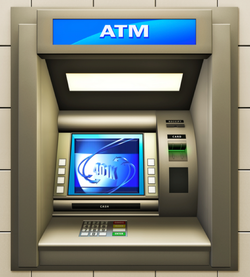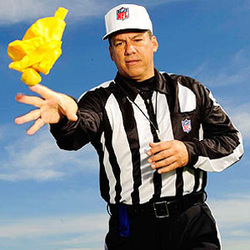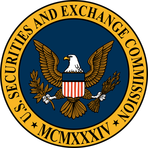
My oldest son is studying macro economics in high school. He will be on his way to college in the fall, the middle child of three that we are trying to put through college. While watching the lacrosse playoffs this morning, he turned to us and asked, "so, how are you guys doing on your retirement savings, we learned in class that no one has any money saved to be able to retire." Looks like he did learn something in high school after all.
We'd like to think that American's have good intentions as far as saving for retirement, but research would show that retirement accounts are replacing houses as the new ATMs. During lean times, wage freezes, unemployment, downsizing or underemployment, many have had to rely on hard earned retirement savings to meet current obligations. Early withdrawals (before 59 1/2) are subject to tax and an extra 10% penalty. It looks like Americans took out $57 billion, early, from retirement accounts in 2011allowing the IRS to collect $5.7 billion in penalty fees. The median size of a 401(k) is $24,400 as of March 31, with people older than 55 having $65,300. Those funds can disappear overnight in retirement and the early withdrawal numbers indicate that the next financial crisis will have the word retirement in it.
Record numbers of Americans made early withdrawals from retirement accounts in 2010 and 2011. Houses used to be the ATM people went to when needing extra cash. Since the housing meltdown of 2008, that's no longer an option. Unable to refinance or take out second mortgages, pulling money from the 401(k) ATM is the new piggy bank. Rather than using home equity for expensive vacations, new cars and mountain homes, seems that Americans really need the cash, this time, to survive and are taking a 'worry about it later' attitude.
We'd like to think that American's have good intentions as far as saving for retirement, but research would show that retirement accounts are replacing houses as the new ATMs. During lean times, wage freezes, unemployment, downsizing or underemployment, many have had to rely on hard earned retirement savings to meet current obligations. Early withdrawals (before 59 1/2) are subject to tax and an extra 10% penalty. It looks like Americans took out $57 billion, early, from retirement accounts in 2011allowing the IRS to collect $5.7 billion in penalty fees. The median size of a 401(k) is $24,400 as of March 31, with people older than 55 having $65,300. Those funds can disappear overnight in retirement and the early withdrawal numbers indicate that the next financial crisis will have the word retirement in it.
Record numbers of Americans made early withdrawals from retirement accounts in 2010 and 2011. Houses used to be the ATM people went to when needing extra cash. Since the housing meltdown of 2008, that's no longer an option. Unable to refinance or take out second mortgages, pulling money from the 401(k) ATM is the new piggy bank. Rather than using home equity for expensive vacations, new cars and mountain homes, seems that Americans really need the cash, this time, to survive and are taking a 'worry about it later' attitude.

Consumers are being sent to the penalty box just when it hurts the most. When the equity from home ownership disappeared, individuals looked around for alternative sources of cash flow and found it in retirement funds.
As with all penalties, they are suppose to act as a deterrent to taking the funds out. Some other points:
What the data is showing is that people who are paying the penalties include younger workers who switch jobs and don't bother to roll the funds over. Older works, who have no other options, make up a smaller percentage. A Federal Reserve study last year found that in 2010, 9.3% of taxpayers with retirement accounts or pensions were penalized, up from 7.9% in 2004.
- government now collects 37% more in penalties than in 2003.
- home equity is down by 38% from the 2007 peak.
- 5.7 million tax returns, 4% of U.S. households, reported paying penalties.
As with all penalties, they are suppose to act as a deterrent to taking the funds out. Some other points:
- money in tax-deferred retirement accounts can be removed without penalty after age 59 1/2.
- generally must be withdrawn starting after age 70 1/2.
- withdrawals, at any age, are added to a taxpayer’s income and taxed at regular rates.
- the extra 10% penalty for 401(k) plans applies to early withdrawals, except in cases of disability and certain medical expenses.
- Americans who leave their jobs at or after age 55 also can escape the penalty.
What the data is showing is that people who are paying the penalties include younger workers who switch jobs and don't bother to roll the funds over. Older works, who have no other options, make up a smaller percentage. A Federal Reserve study last year found that in 2010, 9.3% of taxpayers with retirement accounts or pensions were penalized, up from 7.9% in 2004.

Younger workers ages 20 to 39 have the highest cash-out rates, 40% just take the money with them when they switch jobs. The penalties do not seem to be a deterrent and time appears to be on their side. No focus on the long-term implications.
Impact Example: A 30-year-old who cashes out $16,000 could lose $471 a month in retirement income cash flow by not leaving it invested in a retirement account, assuming retirement at age 67 and death at age 93. That scenario assumed a 4.7 percent annual return and a 401(k) balance at retirement of $87,500.
This review has been extremely concerning. Workers will need to rely 100% on 401(k) type investments in the future. Employers (pensions) and the government (social security) are just not a reliable option. "I don't know son, let's get all you kids through college, out on your own, then you can get me to Bermuda, ok?"
How are you getting to Bermuda? Sua Sponte.
Bradford C. Bruner for Sua Sponte Wealth Management
Impact Example: A 30-year-old who cashes out $16,000 could lose $471 a month in retirement income cash flow by not leaving it invested in a retirement account, assuming retirement at age 67 and death at age 93. That scenario assumed a 4.7 percent annual return and a 401(k) balance at retirement of $87,500.
This review has been extremely concerning. Workers will need to rely 100% on 401(k) type investments in the future. Employers (pensions) and the government (social security) are just not a reliable option. "I don't know son, let's get all you kids through college, out on your own, then you can get me to Bermuda, ok?"
How are you getting to Bermuda? Sua Sponte.
Bradford C. Bruner for Sua Sponte Wealth Management



















































